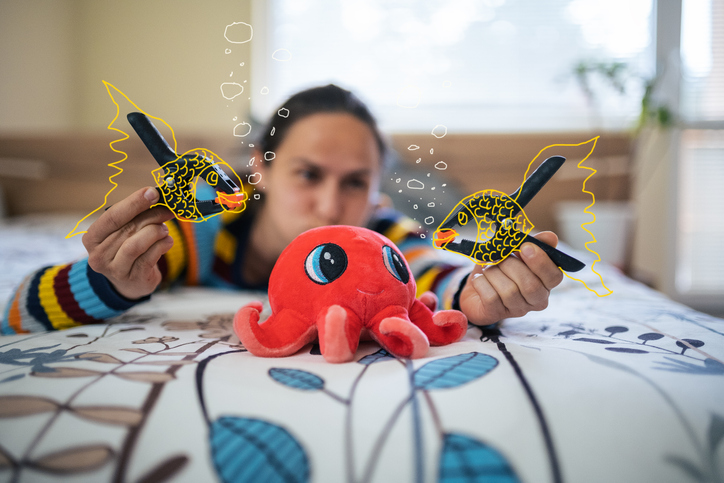That eight-limbed, soft-bodied ocean mollusc, the octopus, is being used as a simple tool to help children manage their feelings in a positive way.
The tool is part of a tip sheet created by the Southern Cross University’s Centre for Children and Young People (CCYP) to support children’s social and emotional wellbeing during COVID-19 and beyond.
“While we have little or no evidence about the social and emotional impacts of pandemics on children, there is some research on parallel events, like children’s responses to natural disasters and terrorism, that we can draw on,” Professor Anne Graham AO, Director of Southern Cross University’s CCYP said.
“Children need to be reassured about their safety. They need to have opportunities to ask questions, be given timely information in clear, factual ways that doesn’t overwhelm them with detail, and be supported to focus on what they can influence, rather than what they can’t. These all reduce anxiety and promote coping.”
The CCYP has produced a tip sheet for parents and caregivers which includes advice under heading such as ‘listen and involve’, ‘get outside, get active’ and ‘be present’ as well as the octopus tool which provides some steps for managing feelings in a positive way. It can also be used for learning emotional literacy as part of ‘home school’.
Using this tool, children draw an octopus and then write an emotion they are struggling with (such as boredom, or fear) in the head. In the legs they write ways they can cope with that emotion, such as going for a walk, talking with someone, or even dancing like a pirate!
By having the octopus in a visible place, they are reminded of things they can do when certain feelings start to worry them.
The CCYP at Southern Cross University conducts research on the rights and wellbeing of children and young people in families, school and the community. See more: scu.edu.au/ccyp



